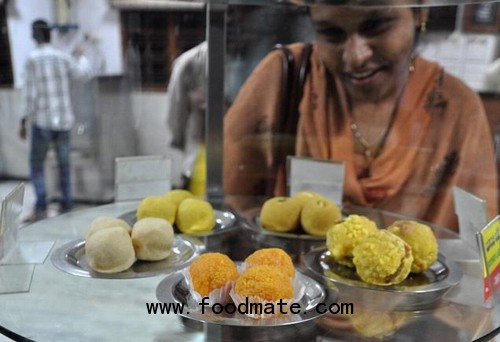
Sugar-free sweets has been the mantra for Deepavali over past few years, with a lot more sweet shops in the city adding a counter for these special sweets made with artificial sweeteners for the diabetic and diet conscious clientele. But, before you buy the exorbitantly priced ‘zero calorie mithai’, make sure you read the fine print on the cover.
“Artificial sweeteners such as Aspartame are a no-no for people with genetic disorders like PKU (Phenylketonuria). The declaration on the sweet package should indicate the name of the sweetener used in the preparation. Also, there is a cap on the permissible amount of artificial sweetener that can be used to prepare sweets,” says Sudarshan Rao, scientist, Food and Drug Toxicology Research Centre, National Institute of Nutrition, Tarnaka.
“The permissible limit of taking artificial sweeteners is 40 mg per kilo body weight. Plus, artificial sweeteners such as Aspartame are heat sensitive and cannot be used in making sweets,” says Rajiv Medanki, physician at a corporate hospital. Aspartame, Saccharin, Acesulfame potassium or Acesulfame K and Sucralose are a few common artificial sweeteners available in the market under various trade names.
“A combination of sweeteners such as Saccharin and Cyclamate are used to reduce the bitter and metallic taste. Cyclamate, a first generation artificial sweetener, is known to cause cancer of the brain and bladder. It has been banned by US Food and Drug Administration (FDA). There has been a lot of controversy around the sweeteners, as to whether they are healthy or lead to mutations that result in cancer,” says Suneetha Sapur, clinical nutritionist and director of city-based Akshaya Foundation.
Experts say that while there is no supportive evidence to prove the toxicity for most sweeteners, the questions on their safety remain. “Can these be given to children? To what extent can we use them? A person consuming four-five cups of tea with artificial sweeteners may be at risk,” says Ms. Sapur.
Binge eating arising out of craving for calories is commonly noticed among people on diet and opting for artificial sweeteners. “Alternately one can use honey, a safe natural sweetener. Stevia also can be used. Using artificial sweeteners for making sweets even at home is not the correct way to reduce calorie intake. It is better to take artificial sweeteners in moderation and not as a substitute for sugar,” she adds.







